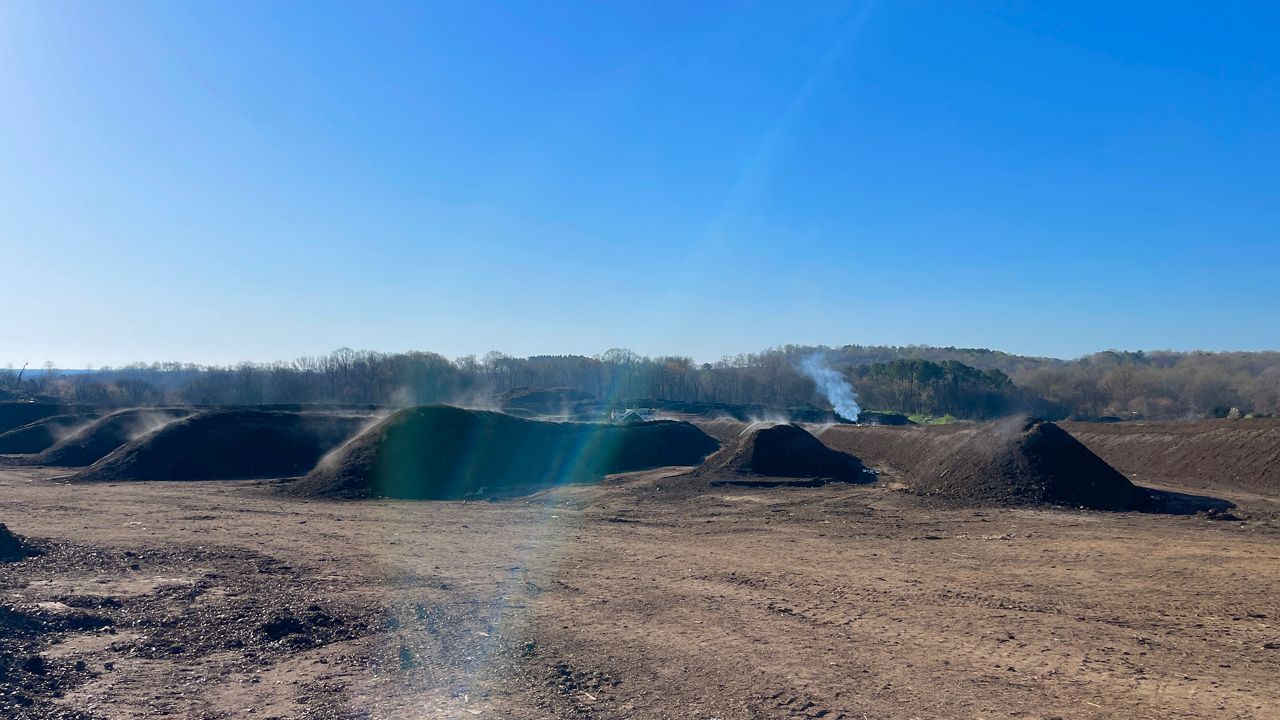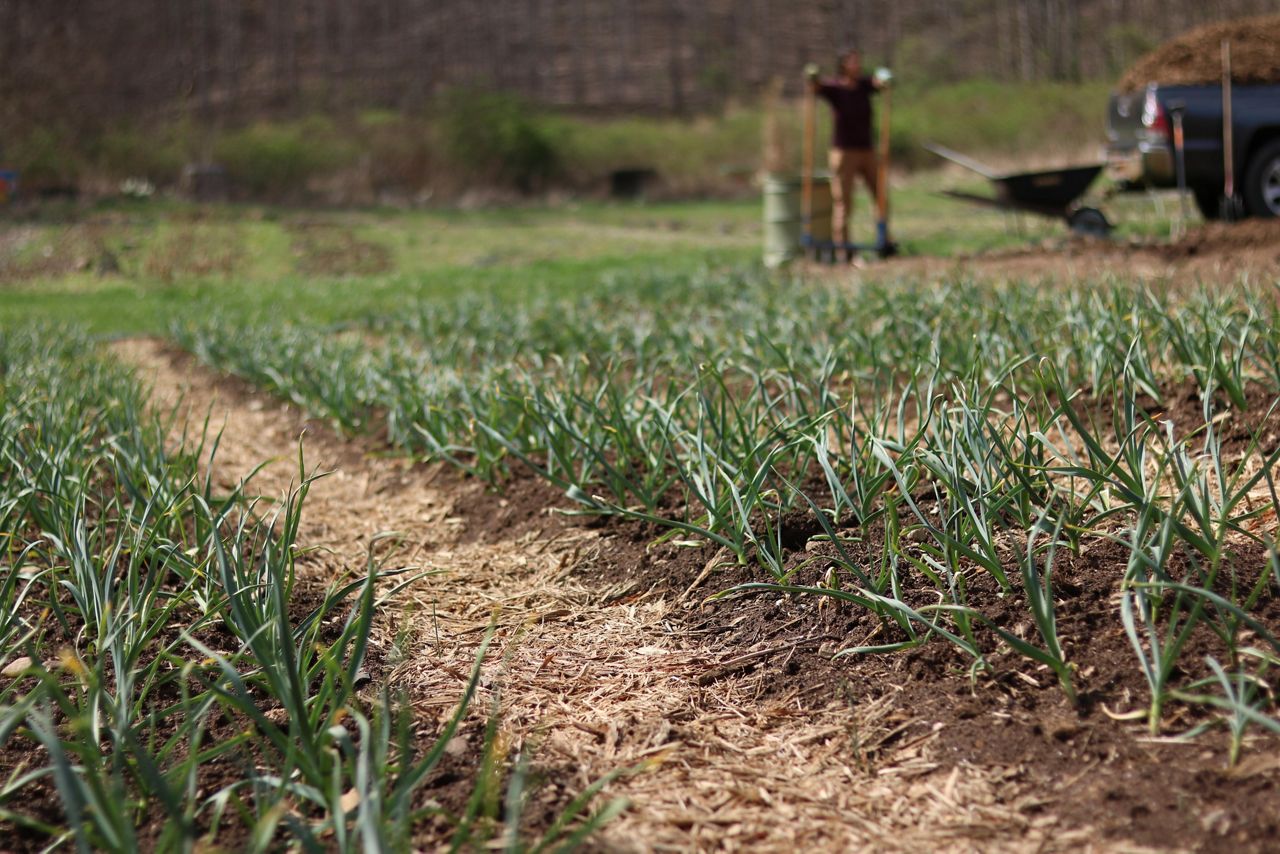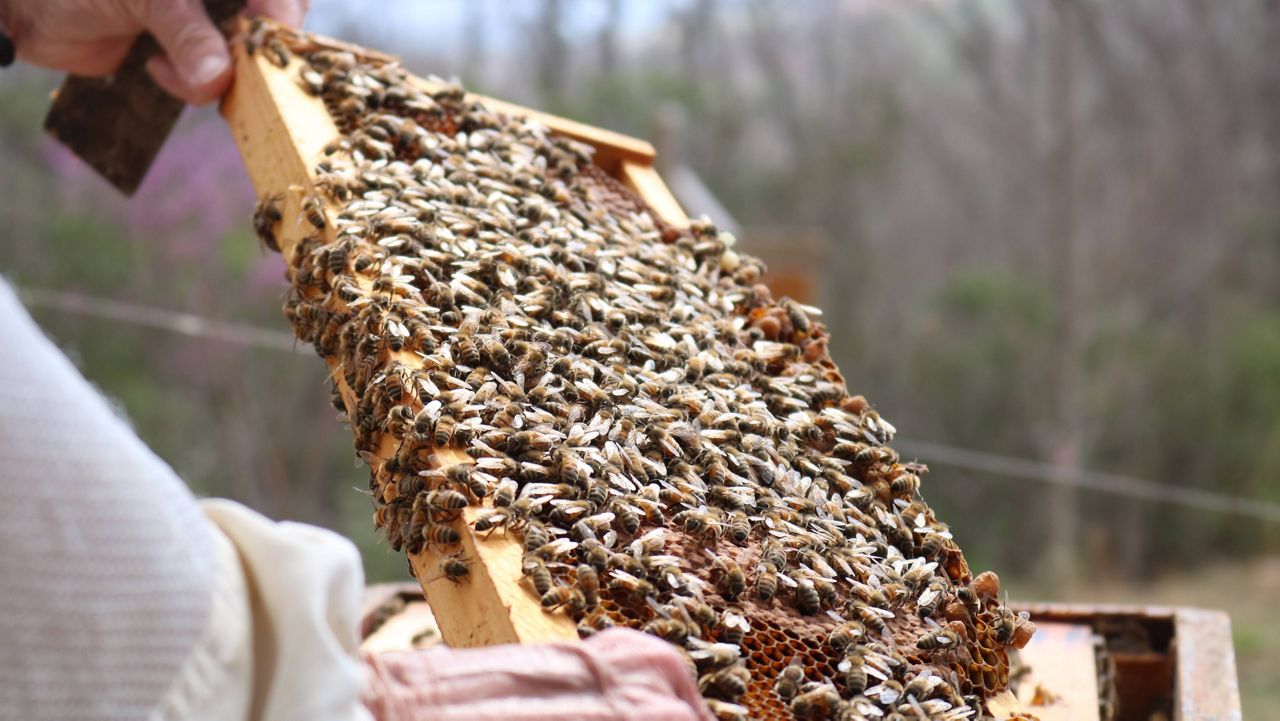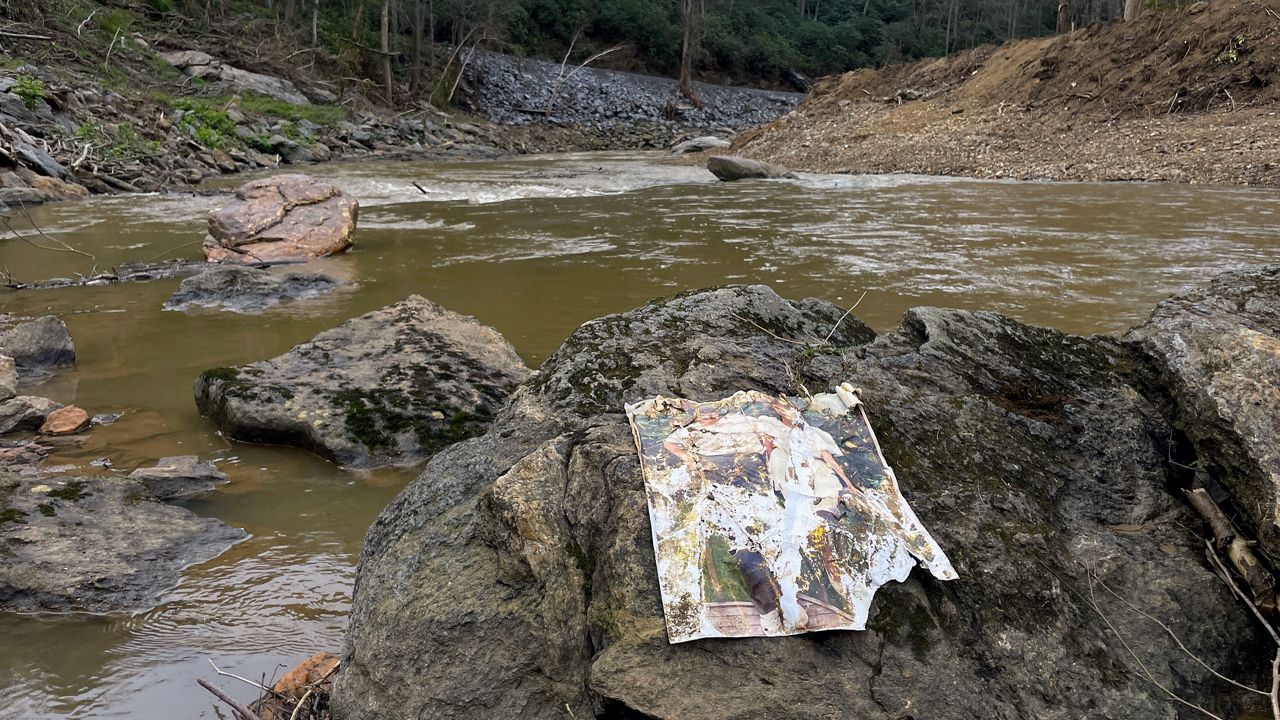YANCEY COUNTY, N.C. — It's been more than six months since Helene tore through western North Carolina, bringing historic rainfall that turned peaceful streams into raging rivers. Countless farms were left with rocky unusable ground where fertile soil once supported crops.
As the weather warmed up, farmers needed to act fast to keep their hopes alive for planting season. But hope and help came through, thanks to a determined group of neighbors, nonprofits and volunteers who worked to help farmers in western North Carolina get ready.
Heavy rainfall from Helene started to fall in western North Carolina even before the tropical system made landfall in Florida as a Category 4 hurricane. The extreme amounts of rainfall (over 30 inches in some cases) along with the state's mountainous terrain led to runoff that resulted in historic river flooding.
The French Broad and the Swannanoa were just some of the rivers that ran over their banks and surpassed any flooding in recent history. Helene is now the new flood of record for Asheville, surpassing the Great Flood of 1916.
Charlie Rankin, a farmer and founder of the nonprofit Meet My Neighbor Productions, had heard the stories about the devastation western North Carolina and couldn't stand back without helping once he saw the damage firsthand.
"There have been a lot of farms in the western North Carolina mountains that have had to completely close up because they didn't have the financial means to get through a period of time where they couldn't produce or to reinvest into their property in order to get back into production," he said.
His organization focuses on teaching the public about agriculture, making the connection between when our food is harvested and when it reaches our plates. Rankin worked with Brooks Contractors to supply the compost — 1,000 cubic yards of it — to mountain farms that lost their soil.

"Getting compost to the mountains is like moving a mountain to the mountains — 1,000 cubic yards is a lot of dump trucks!" he said.
The logistics were not easy, but the community responded. A recent $15,000 donation helped Meet My Neighbor Productions complete its goal and fund additional farm needs, such as new fencing.
One of the areas hit hard by Helene was Yancey County. The Dig In! Yancey Community Garden was getting ready for the harvest when the storm hit and has had to rebuild where a creek overflowed its banks.
"There's a creek right along the road that overflowed its banks," executive director Kavita Hardy said. "A lot of sand was deposited and some of the topsoil was washed away."
Hardy's team of staff and volunteers is committed to growing healthy food for those in need. They not only cultivate the land but also run food-sharing markets where anyone can take home food for free without having to demonstrate a proof of need.
"We like to say that access to fresh food is a right and not a privilege and that we grow food for anybody who eats food, which is everybody," Hardy said.
However, funding cuts to federally supported food programs have created new challenges for farms and community gardens like Dig In!
"There's a lot to be seen about how that impacts our community's access to fresh food — and the outlets that farmers have to sell their food," Hardy said. "It's really unfortunate at this moment where folks are really trying to rebuild and make it as farmers."
Despite the hardships farmers have been facing in western North Carolina, receiving compost from friends in central North Carolina was a big help for many farms to get started on planting this year.
Hardy and others are optimistic about the future because of garlic.
"Garlic is a unique crop in that you plant it in the fall and let it slowly grow all winter long. Then in the spring, it's ready to really jump," Hardy said.
Of course, when garlic should have been planted was right when her community was reeling from Helene. Access to the community garden had been wiped out and a lot of those who worked on the farm were isolated.

"We felt as a community garden that getting that garlic in the ground was an absolute priority because it's such a symbol of hope," Hardy said. "You're doing it at this moment where everything is looking dead and dejected, and you are getting together and planting it and trusting that you will be there and the garlic will be there the next season when it's time to enjoy it."
With compost in the ground and seeds starting to sprout, western North Carolina's farmers are planting not just crops but resilience, recovery and hope.
Our team of meteorologists dives deep into the science of weather and breaks down timely weather data and information. To view more weather and climate stories, check out our weather blogs section.







